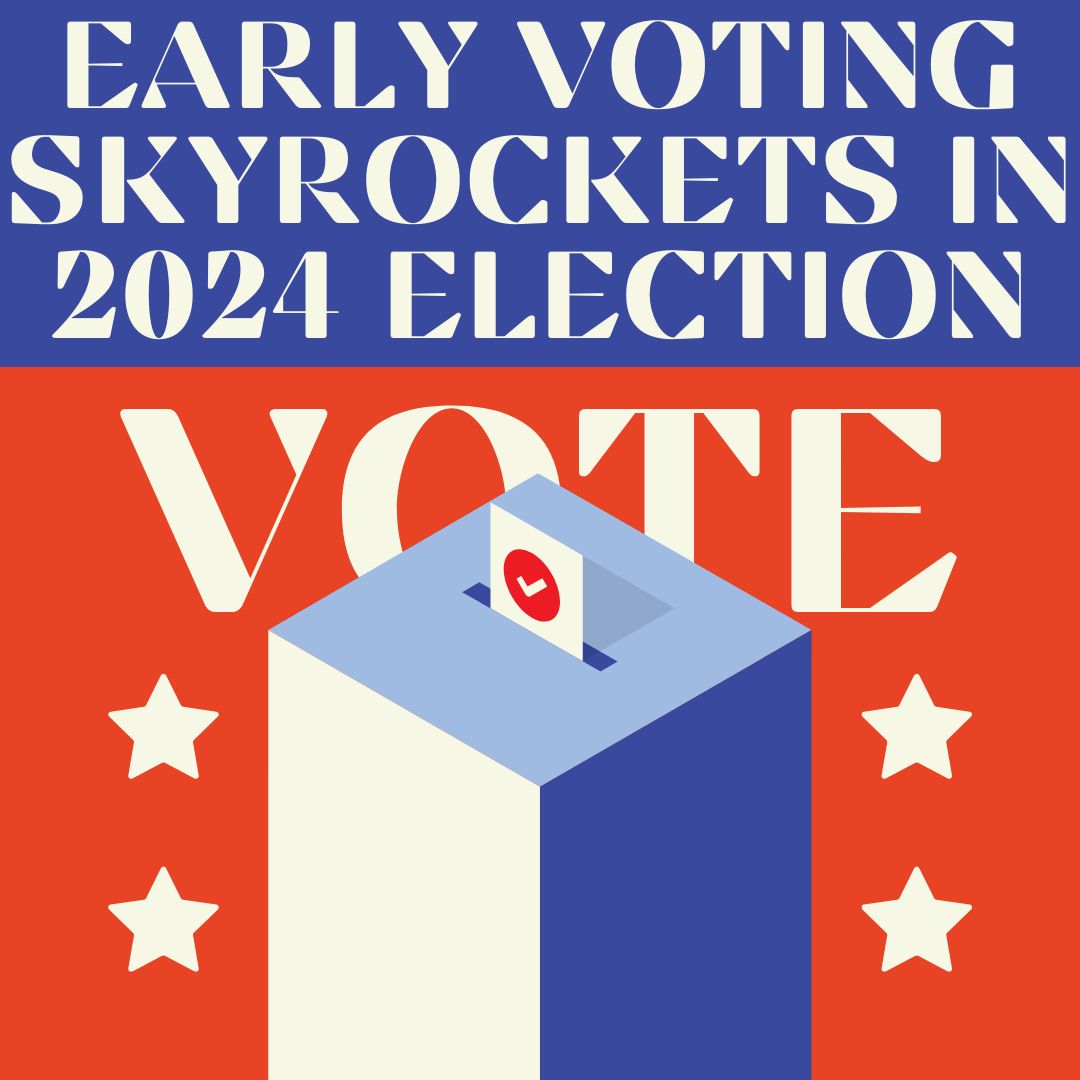In recent years, Black Friday has slowly transformed from a festive and energetic holiday into a stretched-out season.
In the 2000s and 2010s, Black Friday was a moment of lively deal-hunting, filled with anticipation after looking through pages upon pages of catalogs. Plans were made on how to find the best deals as fast as possible. Many even camped outside stores the night beforehand to ensure a good spot in line.
Now, the magic of Black Friday is slowly dying out. After the COVID-19 pandemic caused spikes in online shopping, the e-commerce market has continued to grow due to its convenience and accessibility. Many consumers are opting to switch to online deals rather than navigating large crowds to fight for limited-time deals.
“Avoiding the crowds is a big factor, and there’s less risk of missing out on items since everything is available with just a few clicks,” explained junior Tiffany Ku in regards to her preference of online shopping over the traditional Black Friday experience.
Online retail companies such as Amazon are fighting to take their cut out of Black Friday. Amazon streamed the Jets vs. Dolphins game exclusively on Amazon Prime during Black Friday last year. In effect, Amazon encouraged their subscribers to stay home instead of going shopping, increasing the likelihood that those same consumers would choose to find deals through Amazon.
Cyber Monday has also pulled the plug on Black Friday. In 2022, Cyber Monday generated a total of nearly $11 billion dollars in revenue, while Black Friday fell behind at just around $9 billion.
The major difference in marketing has pushed Cyber Monday ahead of Black Friday: whereas Black Friday is angled toward large-scale purchases and large-scale savings ー including many items such as TVs and gaming systems ー Cyber Monday pushes for impulsive online purchases of smaller items, which are generally the bestselling items.
“Purchases are usually impulsive. People tend to see good prices on products and think ‘that’s a good deal, I might as well get that,’” stated senior Michael Lukowicz. This tendency has continued to push Cyber Monday into the limelight while diminishing the appeal of Black Friday.
Another blow to Black Friday came when many brick-and-mortar stores began their in-person sales earlier than ever alongside their extended online sales. This fall, Walmart began its Black Friday deals on Nov. 11, nearly three weeks before Black Friday itself. There are several rounds of deals throughout the whole month, ensuring that there are always fresh deals for curious customers. The retail giant Target followed a similar tactic with weekly deals starting from Nov. 3 and continuing up through Thanksgiving week.
On the other hand, the decline of participation in Black Friday has relieved the stress from many overworked retail employees. Many companies, including Best Buy, have chosen to close their stores on Thanksgiving day to allow their employees to spend time with their families. Although this cuts out of the ever-increasing hours of the Black Friday rush, it also reduces the mental strain for the often overwhelmed employees.
“As a merchandiser myself, I would say that stores should close [on Thanksgiving Day]. It’s incredibly stress inducing to attempt to stock various items while the stores are packed,” added Lukowicz, who works in one of Pepsi’s fulfillment centers.
The struggle between Black Friday and online shopping is one that will continue for years to come. Even though consumer enthusiasm for the in-person hustle and bustle of Black Friday is now fading fast, the future now holds promise at the hands of the e-commerce industry.









